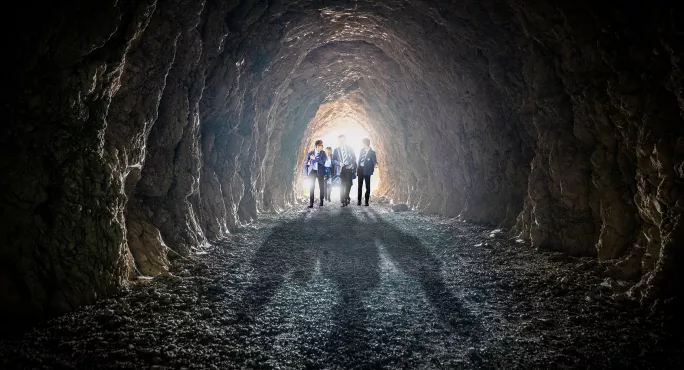- Home
- Analysis
- Specialist Sector
- Why schools are key to creating empathetic future leaders
Why schools are key to creating empathetic future leaders

Imagine a world where empathy and compassion are at the centre of our interactions with one another. This world is available to us, but only if we work to build these traits within ourselves and others.
Of course, this is work educators aim to do every day - instilling students with foundational skills to better serve themselves, their peers and their communities. But that doesn’t make this work any less challenging, especially in the face of a global rise of ideological polarities that seek to divide us.
This year is particularly daunting. Of course, democracy in its many forms is to be celebrated, as more than half the world’s population prepares to vote in the next 12 months, including in India and the US.
Yet these elections will add to an already precarious global mood. Students across the globe will bear witness to this unfolding in the year and schools will be central to how they experience it.
The role of education
Education is key to promoting the development of critical thinking skills and self-inquiry, as well as the cultivation of empathy and compassion, to combat divisiveness leading to isolation and misinformation, which may soon pose an existential threat.
There is an opportunity to design and implement a curricular framework and pedagogical approach that actively builds empathy and oppositional understanding.
Through instructional approaches that centre on multicultural dialogue, inquiry and socioemotional learning, students can cultivate critical skills and learn from real-life role models to envision how communities can be.
Beyond the obvious benefits of cultivating empathy among young people in the classroom, there is a growing body of research that suggests empathy and compassion are key for intercultural conflict resolution and reconciliation.
And, of course, how each school community values the voice of all its members, deals with tensions that always occur in a community and solves conflicts that arise, leaves the strongest impression in students’ minds.
Systems that connect, not divide
When students learn to empathise and act compassionately towards their peers, educators and the broader community, they become equipped with essential tools needed to resolve conflicts peacefully and build harmonious relationships.
This is why our world requires an education system that actively aims to open young people’s minds to what is going on around them, rather than closing them off with a specific, prescribed curriculum.
We need to cultivate critical thinking skills, compassion and multicultural understanding to confront the complexities of diverse societies that prevent peaceful co-existence and instead seek to recognise our interconnectedness.
These ideals are not new - the International Baccalaureate itself was born in the immediate aftermath of the Second World War and its founders were determined to create a vision for international education that would play a role in reducing the likelihood of such events ever being repeated.
Sadly, in 2024, we still have work to do. But this does not mean we shy away from the task in front of us. Instead, all in education must recognise the importance of working with young people to find ways to be optimistic about the future and to know they can and will make things better.
Creating future leaders
Educators, school leaders and government officials need to support young people from their early years to help them see the interconnectedness of humanity and the world around them.
Today’s leaders need to listen and give our future generations the space to develop their skills and understanding in a world often marred by division and discord.
Young people must learn not to be frightened by an increasingly complex world but to work with it and even become future leaders for the collective good.
After all, as we face global calamities such as climate change, war and terrorism, it will be leaders who possess a strong capacity for empathy and compassion who are ideally suited to lead us forward.
Through instilling empathy and compassion, education will be key to preparing those future generations to guide the way to a better and more peaceful world.
Olli-Pekka Heinonen is the director-general of the International Baccalaureate
You need a Tes subscription to read this article
Subscribe now to read this article and get other subscriber-only content:
- Unlimited access to all Tes magazine content
- Exclusive subscriber-only stories
- Award-winning email newsletters
Already a subscriber? Log in
You need a subscription to read this article
Subscribe now to read this article and get other subscriber-only content, including:
- Unlimited access to all Tes magazine content
- Exclusive subscriber-only stories
- Award-winning email newsletters
topics in this article



